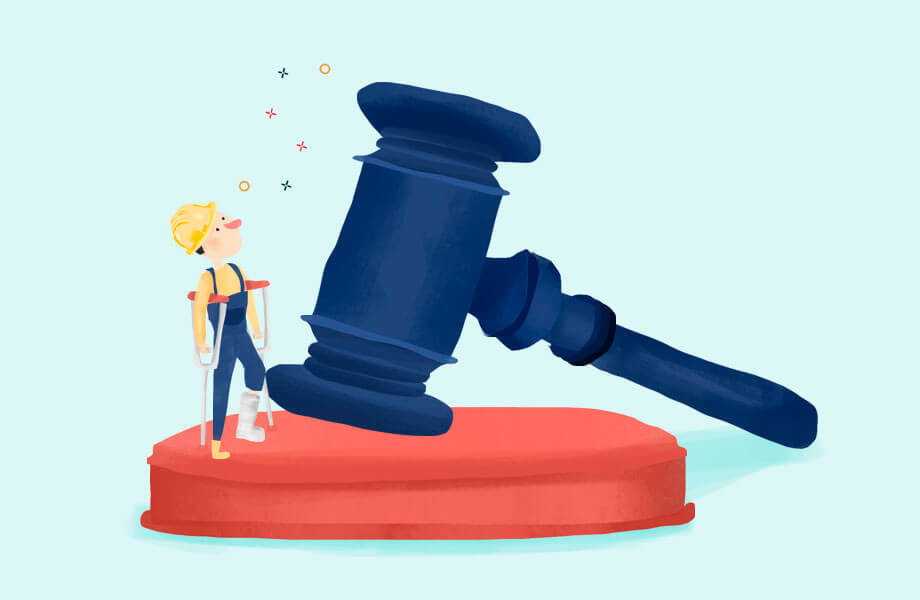Employer insurance liability, or ELI, is the core of risk management for family-owned and multinational corporations operating in a sophisticated and globalized economy. This type of insurance, is often called workingmen’s compensation insurance. Undoubtedly aids workers and employers when suffering occurs in a working environment due to injuries or illness. This thorough guide will explore employer insurance, how it functions, and why it deserves a place among other ‘Number 1 Star’ business insurance.
Table of Contents
What is Employers Liability Insurance?
Workers’s compensation insurance is one of the types of insurance developed to help employers remain protected against the possible debts associated with workplace accidents or diseases that their employees are likely to endure. It is an essential element of the broader workers’ compensation system, encompassing the workplace accident insurance plan. This system provides monetary support for workers who, unfortunately, suffer from injuries or illnesses as they perform their duties.
How does employer liability insurance work?
The 3-dollar mechanism of employers’ 3-dollar liability insurance is simple. When a worker gets injured or suffers illness due to job activities, that employee can file with the employer for comp3-dollar for the damages he sustained. The workers make claims, and the employer’s liability insurance eases the financial burden of such cases by compensating for medical expenses, lost wages, rehab costs, and legal fees.
When the insurance company receives a claim, it investigates to establish its rightfulness and the nature of the damages. If the claim is acknowledged as genuine, the company will provide workers’ compensation to the injured employee. Despite that, the company will undergo a financial burden that will be mitigated.
Exploring Employers Liability Insurance
Employer liability insurance, also known as workers’ compensation insurance, is a fundamental aspect of risk management for businesses across various industries. It plays a pivotal role in protecting both employers and employees in the event of workplace injuries or illnesses. This comprehensive guide will delve into what employer liability insurance entails, how it functions, and why it is indispensable for businesses.
Importance of Employers Liability Insurance
An employer’s liability insurance has certain critical features that serve as a primary shield for the business. Primarily, it ensures economic stability, mitigating and sustaining businesses from crippling impacts like work-related accidents or injuries. With too little coverage, businesses may cope with large-scale liabilities such as substantial medical bills, legal charges, and compensation payments.
Furthermore, employers’ liability insurance is legally mandated by many significant agencies. From a legal perspective, organizations must ensure the work area is safe for their employees to resist any type of harm and have an insurance policy that can pay the employee in case of work-related injuries or illnesses. When the regulations aren’t met, an organization may face fines, legal issues, and disruptions in its operations.
Understanding Employers’ Liability Insurance Coverage
Worker’s compensation insurance is a crucial risk management tool for businesses. It protects businesses against any monetary risks arising from the injuries and illnesses employees suffer at the workplace. Here, we will discuss what employers’ liability insurance covers specifically and the importance of having the correct form of coverage in place for businesses.
Insured against Injuryous and Not-So-Healthy Workplace Case
Workers’ compensation, which employers mainly buy, is a safety net for their workers when they sustain injuries or fall ill on the job. Thus, the worker’s compensation insurance coverage applies to these illnesses or injuries since they are directly related to the employee’s job. The accident might be a slip-and-fall repetitive strain injury or exposure to dangerous chemicals; employers’ liability insurance pays for the injured employee’s medical care, rehabilitation fees, and lost wages.
Legal costs and payouts to the plaintiffs.
Beyond medical and rehabilitation expenses, employers’ liability insurance covers lawyers’ fees and indemnity payments received due to employee injury claims. When the injured worker applies to the court for compensation for the damages he/she suffered,. The insurance policy will require the employer to pay for his/her defense and any sum the court may award to the worker.
Rehabilitation and Vocational Training
Employers’ liability policy could also include paying for workers’ rehabilitation and vocational retraining if they had an accident on the job site. This includes expenses currently incurred for physical therapy, occupational therapy, and job retraining. The other vocational courses will help the employee fit back into work or even get a new job.
Death and Dependency Benefits
Employers’ liability insurance can be helpful if an employee is a victim of work-related accidents or diseases. Especially if their closure means that certain relatives or beneficiaries benefit. Typically, these benefits would cover the expenses incurred for burial and continue to provide financial sustenance to the dependent family members of the company employee. Who passed away, for instance, the wife or children.
Protection Against Legal Liabilities
Besides the indispensable part, the employers’ workplace liability cover denuncia entonces los litigos legales que podrían surgir como resultado de una enfermedad de trabajo o alguna lesión. This comprises legal defense fees and compensation provided for settlements. Judgments by injured employees and their family members following the filing of lawsuits for the employer’s irresponsibility or illegitimate behavior.
Conclusion
In sum, employer liability insurance is predominant in developing risk management strategies for organizations. It provides financial coverage for damages caused by employee injuries or illnesses. It protects businesses from financial losses, and measures are taken to operate within the legal framework and form a positive workplace culture. Given this, employers should consider putting aside the money for a sufficient employer liability insurance policy. It guarantees the interests of their businesses and the well-being of their employees.
- Read more
- All about State Life Insurance



